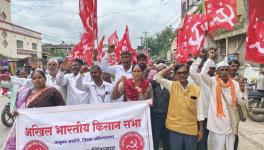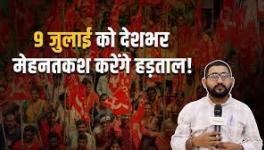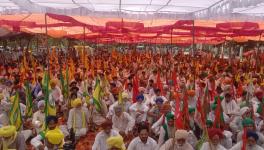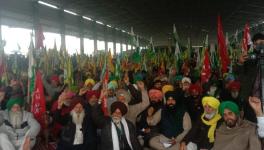Bharat Bandh: ‘In Odisha, Minimum Support Price is Now Maximum Price, We Won’t Accept This’
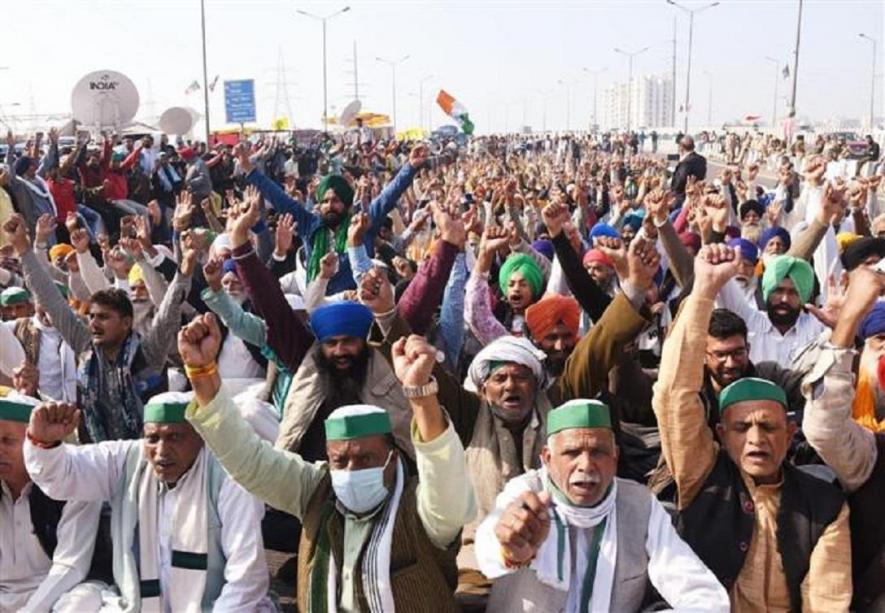
Representational Image. Image Courtesy: Tribune India
The Samyukta Kisan Morcha has declared a pan-India Bandh on September 27 against the three farm laws. The bandh is being supported by 19 political parties, 10 central trade unions and several other organisations. NewsClick spoke over the phone to Lingaraj Pradhan, a Pashchim Odisha Krishak Samanvay Samiti leader, to understand the plight of farmers, their opposition to farm laws, and the preparations for the bandh in Odisha. Edited excerpts:
Ravi Kaushal: Odisha is not only physically distant from Delhi, it is also distant in terms of imagination, as people here have very little information about the condition of farmers in the state. Why are farmers in Odisha opposing the three farm laws?
Lingaraj Pradhan: We have to accept that the benefits of the Green Revolution were reaped by farmers of Punjab and Haryana. States like Bihar and Odisha could not develop their agricultural infrastructure. When we look at irrigation coverage in Punjab and Haryana, we find it is close to 100% where water is easily accessible. There is hardly any area where you will find that irrigation is not possible.
In Odisha, irrigation coverage is only 30%, which means that people are engaged in subsistence farming. They are living in absolute poverty. As per the latest findings of the National Sample Survey Organisation, our farmers are the poorest after those in Jharkhand. Whenever they look for examples of prosperity, they envision Punjab and Haryana, where the procurement system through mandis is quite robust and irrigation facilities are widely available.
The protest against three Central farm laws has completed 10 months at Delhi’s borders. It has generated an unprecedented awakening among farmers of Odisha, too, who feel there should be a robust mandi system here as well. The experience of the past 20 years under globalisation and liberalisation has shown us that the minimum support price (MSP) is now the maximum price, and dependence on the market to cover costs in agriculture is total. In this context, if the government does not take up procurement in its own hands, the farmers would find it difficult to do farming.
The struggle against the three farm laws in the state is to ensure a robust mandi system and for better irrigation facilities. Before 2003, there was no mandi system in Odisha. The collective struggle of the farmers’ organisations compelled the government to bring in the mandi system. However, it is still not in good shape.
So, this is a broad-based struggle to ensure a secure income and bring diversity in farming here. The protests at the gates of Delhi have bolstered farmers' confidence across the country, and they are fighting for their rights.
RK: You have been organising farmers in one of the most backward districts of the country. Do you find any simmering anger, particularly when farmers are growing only one crop and have no alternative means to support their livelihood?
LP: As I mentioned earlier, the farmers of Odisha have been found to be the poorest after those in Jharkhand. In Western and Southern Odisha, we find a trend of small and marginal farmers migrating to North India. They work in brick kilns or factories at very nominal rates with working conditions akin to bonded labour. They were visibly agitated over their plight and the farmers’ movement has given them a chance to think about their own conditions.
RK: Odisha has a very significant population of sharecroppers who do not own any land. How will the three farm laws affect them?
LP: In Odisha, they (sharecroppers) are known as Bhaag. The government of Odisha's data suggests that Bhaag constitute 86 % of the total rural population that is dependent on agriculture in the state, and we have no law to protect these sharecroppers, as opposed to what we see in Kerala and West Bengal, where the Left parties once ruled. These farmers will be the worst victims of the farm laws. Even now, if any natural disaster hits the crop, they have no security. They cannot get loans from cooperative banks or societies. Agriculture is already a loss-making venture. In this condition, if contract farming comes into effect, these farmers will simply starve.
RK: Please tell us more about what you call a weak procurement mechanism in the state and its adverse impact on agriculture.
PL: After a relentless struggle, the Odisha government has agreed to a decentralised procurement system, but it is not robust. We have been demanding MSP on pulses and oilseeds. Procurement by the state government has increased. In 2003, it procured 10 lakh tonne of paddy, which jumped to 70 lakh tonne last season. But, the government procures only paddy at MSP. Now, this has led to another crisis, as everyone is growing only paddy, since they get an incentive for it. But, the government says it cannot procure all rice for the public distribution system.
Odisha farmers also grow cotton, especially in districts like Koraput, Balangir, Kalahandi, but there is no mechanism to procure these. Even the Cotton Corporation of India does not come here. Cotton-related industries in the state have already vanished. So, the government needs to ensure MSP on other crops, too. Without this, there will not be any significant improvement in farmers' incomes.
RK: The SKM has called for Bharat Bandh on September 27. How are your preparations and what kind of response are you expecting?
PL: Our movement has completed 10 months and its tenacity to withstand any challenge has made farmers enthusiastic about the bandh. They are thoroughly preparing for it as the second wave of coronavirus is over. We are being supported by workers’ unions, transporters unions, teachers, employees etc. We have been organising juloos (marches) in towns to inform people about the bandh.
Yes, it is true that it will be a comprehensive bandh as the political parties too have extended their support. Congress has already declared its support; Left parties are also part of it. The ruling Biju Janata Dal has not supported the bandh openly, but there seems to be a tacit understanding. We have seen the government order to close its offices, schools and colleges and other establishments. This will happen this time too. The state is set to see one of its biggest bandhs.
Get the latest reports & analysis with people's perspective on Protests, movements & deep analytical videos, discussions of the current affairs in your Telegram app. Subscribe to NewsClick's Telegram channel & get Real-Time updates on stories, as they get published on our website.










